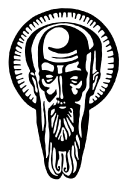Volumes
To download an article, click on its title.
Volume editors: Maria Endreva, Svetlana Arnaudova, Reneta Kileva, Mikaela Petkova-Kessanlis, Radka Ivanova
Publication date: April 11, 2025
ISSN: 2815-2867
Contents (in German)
Foreword to the issue (in German)
Part 1: LITERARY STUDIES
Introduction to Part 1 (in German)
Svetlana Arnaudova Sofia University St. Kliment Ohridski (Bulgaria)
THE PRESENCE OF (HI)STORIES: ON THE LITERARY REFLEXION OF EUROPE IN NOVELS BY ROBERT MENASSE AND GEORGI GOSPODINOV (in German)
Doerte Bischoff University of Hamburg (Germany)
RESTLESS GUESTS: TOURISTS IN LITERARY WORKS. A CHANGING LIFE STRATEGY AND PRACTICE (in German)
Maja Razbojnikova-Frateva Sofia University “St. Kliment Ohridski” (Bulgaria)
FICTIONS OF WAR: WOLFGANG BORCHERT AND SERHIJ ZHADAN (in German)
Hans-Gerd Winter University of Hamburg (Germany)
AVANT-GARDE APPROACHES TO HISTORICAL BIOGRAPHICAL RUPTURES. ON HORST BIENEK’S AND OSKAR PASTIOR’S MEMORY WORK ON THE GULAG (in German)
Hiroshi Yamamoto Waseda University (Japan)
NO CHANGE IN SIGHT? MIRNA FUNK’S WRITING BETWEEN GERMANY AND ISRAEL, MEMORY, EXPERIENCE OF VIOLENCE, AND EMERGING ANTISEMITISM (in German)
Alexandra Preitschopf University of Klagenfurt (Austria)
THE PROVINCE OF THE MEMORY. THE “HISTORIANS DEBATE 2.0” IN GERMANY AND THE DEBATE ABOUT THE “SAVING” OF THE BULGARIAN JEWS (in German)
Daniela Decheva Sofia University “St. Kliment Ohridski” (Bulgaria)
LEGACY, GHOSTS, CHRONOFERENCE: THE RE-PRESENTATION OF THE PAST IN KATJA PETROWSKAJA’S “DAS FOTO SCHAUTE MICH AN” (2022) (in German)
Ulrike Vedder Humboldt-University Berlin (Germany)
THE INEXTRICABLE SCENE. GLOBAL TEMPORALITIES IN DOROTHEE ELMIGER’S AUS DER ZUCKERFABRIK (in German)
Kira Jürjens Humboldt-University Berlin (Germany)
INTERCULTURAL SOCIAL CHANGE AS GENEALOGICAL BORDER CROSSINGS IN DINÇER GÜÇYETER’S PROSE (in German)
Aglaja Blioumi Nationale und Kapodistrias-Universität Athen (Griechenland)
THE LANGUAGE OF MANIPULATION AND THE LANGUAGE OF POETRY. THE PLACE OF THE VOICE OF POETRY IN THE CONTEMPORARY POLITICAL AND MORAL DISCOURSE (in German)
Ivan Popov Sofia University “St. Kliment Ohridski” (Bulgaria)
DIMENSIONS OF THE POLITICAL IN MARLENE STREERUWITZ’ WORKS (in German)
Maria Endreva Sofia University “St. Kliment Ohridski” (Bulgaria)
SHOULD THE MUSES BE SILENT IN TIMES OF WAR? THE PATHS OF BROCH AND BUBER TO HUMANITY (in German)
Krasimira Hristova University of National and World Economy (Bulgaria)
TO BE LONELY AND TO BE ALONE. A LIBERATING CHANGE OF ATTITUDE (in German)
Violeta Vicheva Bulgarian Academy of Sciences (Bulgaria)
SIGNS OF TIME. NARRATIVES OF SOCIAL EXPERIMENTS (in German)
Nikolina Burneva St. Cyril and St. Methodius University of Veliko Tarnovo, Bulgaria
Part 2: TRANSLATION
Introduction to Part 2 (in German)
Reneta Kileva-Stamenova Sofia University “St. Kliment Ohridski” (Bulgaria)
TRANSLATION STUDIES MOVING FROM PERIPHERY TO OUTREACH (in German)
Georgios Floros University of Cyprus (Cyprus)
INTRALINGUAL TRANSLATION AND TRANSLANGUAGING: FOSTERING METACOGNITION IN FOREIGN LANGUAGE TEACHING FOR TRAINEE TRANSLATORS AND INTERPRETERS (in German)
Olaf Immanuel Seel Ionian University Korfu (Greece)
LEGAL TRANSLATION IN STUDIES AND IN PRACTICE – STOCKTAKING AND PERSPECTIVES (in German)
Olga Wrede Constantine the Philosopher University in Nitra (Slovakia)
THE LANGUAGE OF THE THIRTH REICH BY VICTOR KLEMPERER WITH REGARD TO TRANSLATIONS. AN EXPERIENCE REPORT (in German)
Ana Dimova Constantin Preslavsky University of Shumen (Bulgaria)
ABOUT THE POWER OF BODY LANGUAGE BY FRANZ KAFKA AND ITS TRANSLATION INTO BULGARIAN (in German)
Gergana Fyrkova Sofia University “St. Kliment Ohridski” (Bulgaria)
BULGARIAN LITERATURE IN GERMAN TRANSLATION AFTER 2010 – MEDIATORS AND RECEPTION (in German)
Reneta Kileva-Stamenova Sofia University “St. Kliment Ohridski” (Bulgaria)

